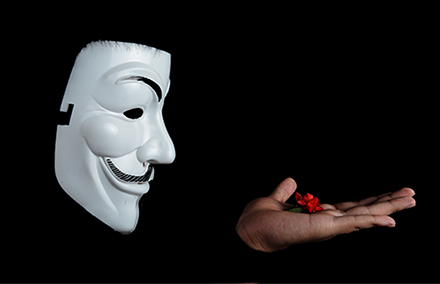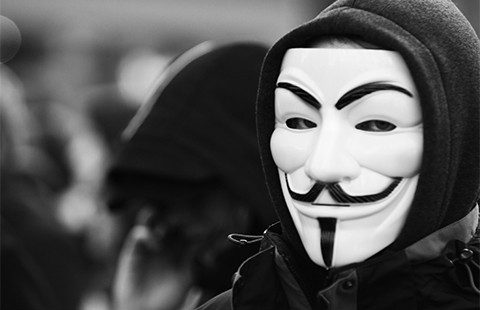
The Thai Junta’s attempts to control cyberspace are setting the country down a dangerous path, writes Khemthong Tonsakulrungruang.
Three weeks ago, thousands of angry Thai Internet users bombarded government websites through a series of denial of service, or DDoS, attacks. By hitting the refresh button on their Internet browsers nonstop, they flooded each websites’ traffic to the point of collapse.
Before the night ended, at least eight sites, including the Information Communication and Technology (ICT) and the Defense ministries, went offline. This was a clear act of defiance against the ruling junta, the National Council of Peace and Order (NCPO) and its Internet policy.
The attacks came after records of Thailand’s cabinet meetings had emerged a few weeks earlier. They reported the cabinet’s resolution for the ICT Ministry to implement “the Single Gateway.” The gateway would see all online communication into and out of Thailand filtered through one access point, giving the government total control over the country’s Internet use.
Opponents likened the gateway to a single hole in a “ka-la” (coconut shell), a metaphor for a veil of censorship and ignorance. Clearly the junta’s plan ramped up control of the already-too-scarce freedom of expression and right to privacy the country currently endures. Unsurprisingly it prompted widespread public outcry.
The gateway also showed that interim prime minister and junta leader, General Prayuth Chan-ocha had ambitions of taking Thailand backwards, joining the likes of China, North Korea, and a few other dictatorial countries. But why would he want to?
The NCPO justified the single gateway on several grounds. First, it cited national security, and in particular a desire to stop the dissemination of false and seditious information.
When the first reason failed to convince the public, the junta then claimed that the single gateway was to promote Thailand’s digital economy by improving Internet speed.
Lastly, the Prime Minister claimed that the single gateway would protect the nation’s youth from online gaming. The DDoS attacks broke out shortly after.
Over the past few years, the ICT Ministry, the primary agency in charge of IT, has been hacked several times, including by a high school student.
Likewise, the Ministry of Culture has been attacked to protest the banning of a TV series, and anti-government hackers once posted inappropriate photos and messages on former prime minister Yingluck Shinawatra’s Twitter account and website. These incidents prove how vulnerable the Thai government is in the online world. Clearly, the government’s Internet security is porous.
This led to doubts as to whether the government could protect citizens’ private data should the single gateway came under attack. One fatal blow would lock Thailand out from the rest of the world.
As such, it is the single gateway that is the real threat to the nation’s security.
The junta’s online war
From the first day of last May’s coup d’état, public gatherings were prohibited. Mobs were mercilessly dispersed, potential troublemakers were detained, and some were openly monitored. The press was told to shut up. Thailand was under the junta’s total control, except the borderless virtual community.
There, its brute could do little to silence criticism. Somsak Jeamteerasakul, a self-exiled academic and critic of the country’s harsh lese majeste law, is perhaps the best example. He fled Thailand shortly after the coup. But he is still active on Facebook, where he exchanges opinions with those who reside within the country as if he never left. His popularity and presence greatly upset the junta, as they see the Internet as a source of dissent and disorder.
Not that the junta hasn’t tried to control the virtual world. Many websites have been blocked. But this blockade is futile on social media platforms; the junta cannot shut down an account it does not like, as long as that account owner does not violate that online community’s standards. This is another world where the junta cannot set the rules.
All the junta’s attempts – from requesting the shutdown of Facebook hours after the May 2014 coup, to claims it could access private Line conversations, as well as using fake icons to harvest Facebook users’ personal data – are insufficient to control the online community. At the moment, the junta is relying on the crudest of techniques. Soldiers and police use fake accounts to befriend potential targets so they can collect evidence for further prosecution.
Thais forgetting what freedom means
The morning after the DDoS attacks, panic was noticeable. Several key figures in Prayuth’s government appeared in the media denying their plan for a single gateway. Embarrassingly, one interview contradicted another.
There was even a denial that the Prime Minister had ever mentioned the words “single gateway.” Then there was a correction that this idea was only in its nascent stages, and far from coming into effect.
More shocking than the NCPO’s devious plan was some of the popular support for a single gateway. While not in the majority, a significant portion of Thais backed the idea. They announced, proudly, that the Internet was not necessary.
‘Redshirts’ were to blame for disobeying Prayuth’s plea to stop spreading rumors harmful to the nation and public institutions; Prayuth was left with no choice but to adopt such a radical measure. Some insisted that, if a person did not commit a crime, they should have no fear about being exposed to government surveillance.
Prayuth has not abandoned the plan yet, even though Anonymous, the well-known international hacktivist group, announced that the Thai government was its next target.
The Single Gateway idea is a reflection of what Thailand is made currently of. The authoritarian government, though lacking expertise and understanding of the matter, proposed the ambitious plan to the detriment of peoples’ rights and the nation’s security.
It employed a paternalistic pretext to cover its spying program, despite knowing that the public is not fooled by such lies.
Tax payers’ money has been wasted and our rights and liberties are seriously at stake.
All of these happenings may be very entertaining to watch when peeping from outside the ka-la of Thailand.
It is less so when living under the shell.
Khemthong Tonsakulrungruang is a Thai constitutional law scholar.
This article is a collaboration between New Mandala and Policy Forum, Asia and the Pacific’s platform for policy analysis and discussion.
 Facebook
Facebook  Twitter
Twitter  Soundcloud
Soundcloud  Youtube
Youtube  Rss
Rss 